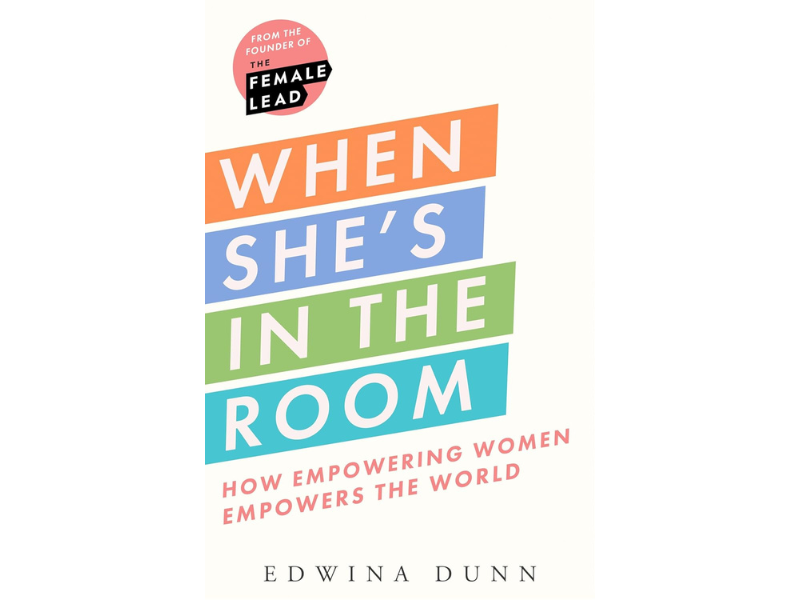STORMBRANDS’ Caroline Dilloway was taken aback when her daughter’s friends looked shocked on hearing her mum was MD at work. Which begs the question: why, in 2023, would a seven-year-old girl find the idea of a woman in a leadership role surprising?
In March, the FTSE 350 announced it had hit its 40% target for women on boards three years ahead of schedule. As of January 2023, there were 1,203 women serving on FTSE 350 boards out of a total of 2,990 directorships. A wonderful step in the right direction. Yet there’s still a significant dearth of female representation in the very top jobs. In fact, only eight women are in CEO roles in the FTSE 100.
When it comes to women in leadership positions, why are we still so behind the curve and what can we do to advance the cause?
Shaping minds from a young age
Strong evidence suggests that ideas around gender, capability and brilliance develop as young as six. When five-year-old girls hear this statement, “A person in my office is really, really smart – they solve problems faster and better than anyone else”, they’re as likely as boys to assume the smart person is of their own gender. But by age six, they’re 20%-30% less likely to assume this talented individual is a woman, according to a study published in Science.
A lot of this is down to societal stereotypes which become entrenched at a scarily young age, further fuelling inherited unconscious bias by witnessing women’s contributions forever being denigrated. So the counteraction needs to happen at a scarily young age too, by shaping young minds so they’re equipped to question pervasive notions of male brilliance versus female fallibility.
Steps to empowerment
Girls need to see successful women in leadership positions to understand that it’s not only possible but also normal for them to achieve such heights. Inviting female entrepreneurs and leaders into schools to talk to young children gives girls (and boys) a chance to see what a leader in the 21st century looks and sounds like, challenging stereotypes. Trips to female-led companies could also provide an opportunity to showcase women in various fields.
Programmes such as these could be backed up with lessons that focus on developing entrepreneurial skills – financial literacy, problem-solving, decision-making and leadership training.
Later on, girls need mentors who can guide them through the process of starting or running a business. Connecting girls with successful women who are happy to share their experiences and offer advice can have a significant impact. This is especially important when you consider that only 21% of girls believe they have the qualities needed to be a good leader, according to New York Times bestseller The Confidence Code for Girls. And the stats are even more gloomy for those from working-class backgrounds.
Promoting creativity and innovation can also help girls develop the confidence to see themselves as future leaders. Schools could organise events that encourage them to come up with business ideas and to solve problems in creative ways, for example.
Negative narratives
With tales of women facing burnout or stepping down from important roles because they ‘can’t have it all’ swirling around the media (think Jacinda Ardern), it’s important we throw a more positive spin on female achievement. And the more natural and organic that messaging can be, the more likely it is to seep in and take hold.
This is especially important when one considers how looks are often still prioritised over achievements. To be an entrepreneur and to really change the course of history, women and girls need to think long-term. A short-lived flurry of income generated by submissive theatrics or looks alone might feel rich momentarily, but what happens ten years down the line? If we want to challenge the societal assumption that women are there for viewing pleasure only, perhaps we need to ask ourselves some tough questions about our progression and how it sits with the continued commodification of the female body.
Smashing stereotypes
It’s also important to embolden girls to take more risks and see their futures without success-limiting gender restrictions. We must be careful not to let girls’ innate desire to be nice stop them from setting boundaries. Girls should proudly demonstrate their intrinsically tough side. Executed in a kind, caring and human way, toughness can be their most effective weapon.
It’s only by providing young girls with the tools, resources and support they need to develop the skills and confidence to become successful business leaders that we’ll reverse some of the more depressing statistics. Young girls need our support so they’re not surprised to hear that a woman’s the boss – they shouldn’t expect anything less.









